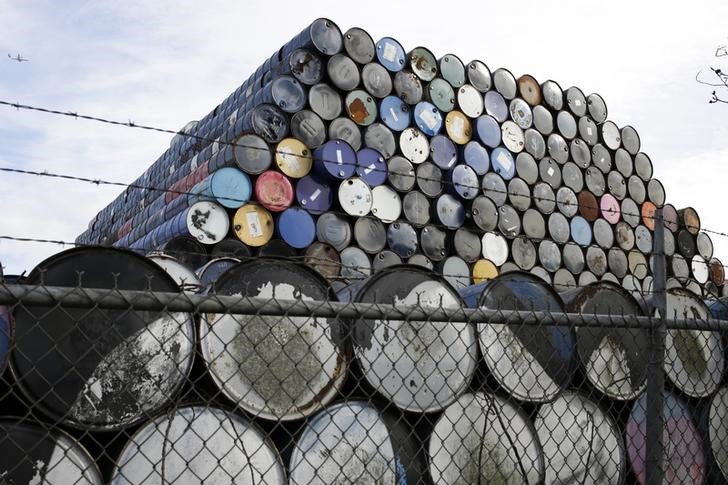SINGAPORE, June 27 (Reuters) - Crude oil futures were largely unchanged in early Asian trade on Tuesday as the market took a breather following three days of gains with a supply glut keeping a lid on prices.
U.S. West Texas Intermediate (WTI) crude futures CLc1 were down 2 cents at $43.36 per barrel by 0019 GMT and Brent crude futures LCOc1 were flat at $45.83 per barrel.
The market is up slightly so far this week, but Brent and U.S. crude oil have dropped for the past five weeks.
The Organization of the Petroleum Exporting Countries (OPEC) and its partners have been trying to reduce a global crude glut with production cuts. OPEC states and 11 other exporters agreed in May to extend cuts of 1.8 million barrels per day (bpd) until March.
However, Nigeria and Libya, OPEC members exempt from the cuts, have raised output.
Iran was allowed a small increase to recover market share lost under Western sanctions. It said its production has surpassed 3.8 million bpd and is expected to reach 4 million bpd by March.
And U.S. shale oil output has risen around 10 percent since last year, with the number of U.S. oil rigs in operation at the highest in more than three years. RIG/U
Hedge funds and other money managers appear to have abandoned all hope that OPEC will rebalance the oil market, slashing formerly bullish bets on crude futures and options, John Kemp, a Reuters market analyst said in a column. data showed that speculators had cut their net long positions in WTI and Brent to its lowest level in 10 months last week," ANZ said in a note.
"Traders are also looking ahead to the EIA Energy Conference in Washington, where U.S. shale oil producers are expected to give their view of current market conditions."
Analysts at Bank of America-Merrill Lynch said demand had not grown quickly enough to absorb excess output.
As the global oil market frets about a stubborn supply glut, faltering demand growth in key Asian crude importers is further hampering efforts to restore market balance.
A fuel glut in China, a hangover from demonetisation in India, and an ageing, declining population in Japan are holding back crude oil demand growth in three of the world's top four oil buyers.
